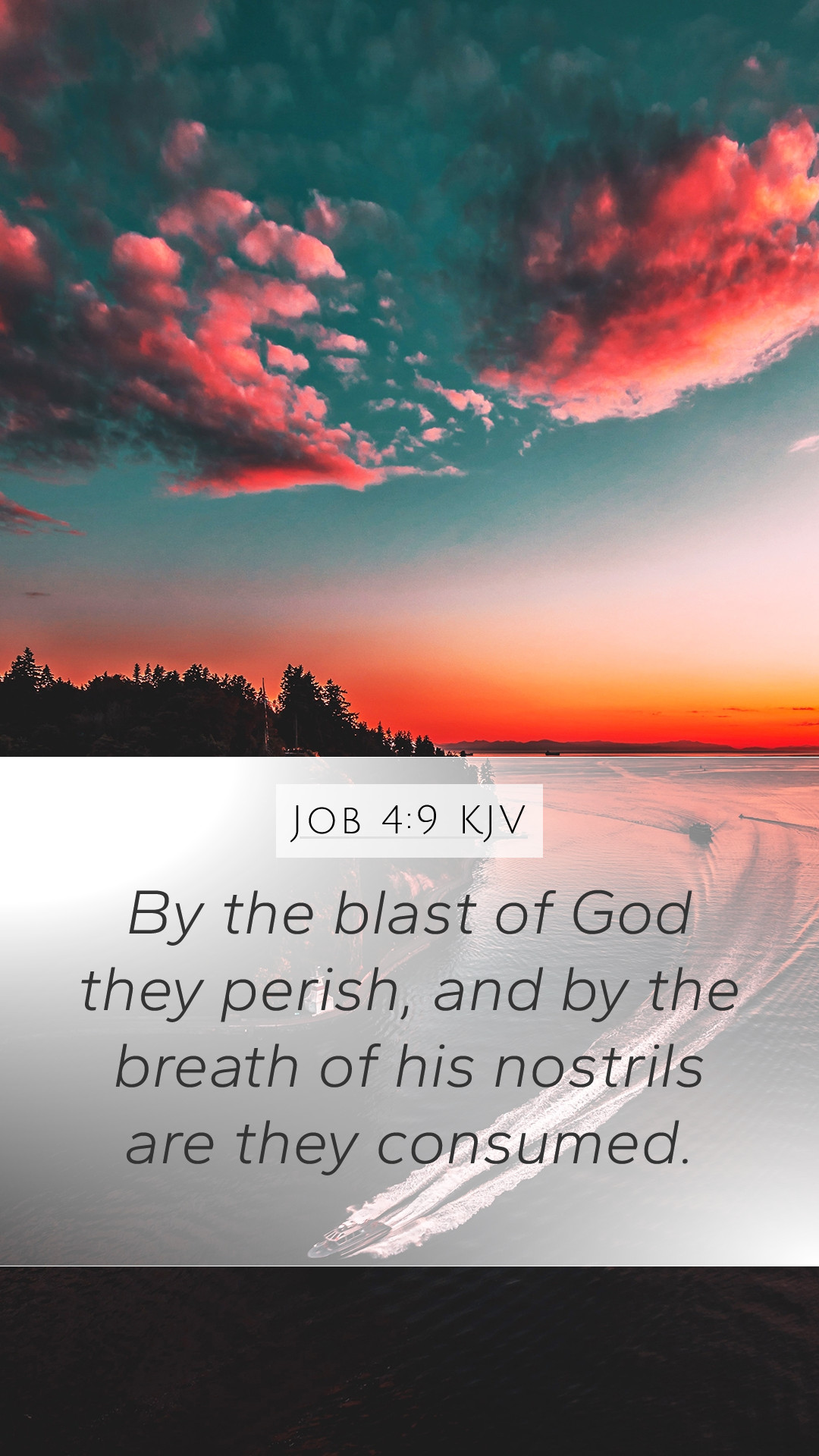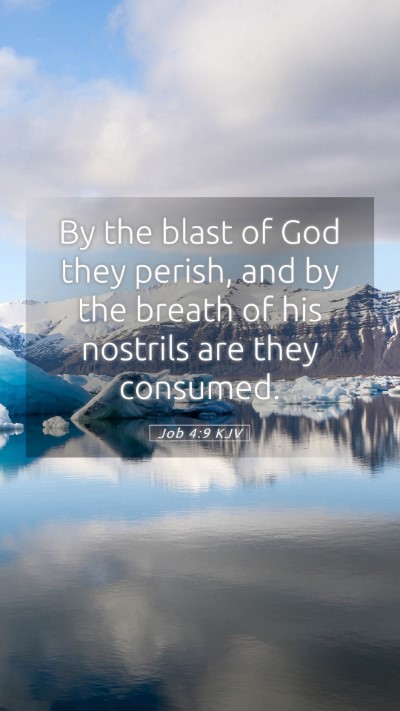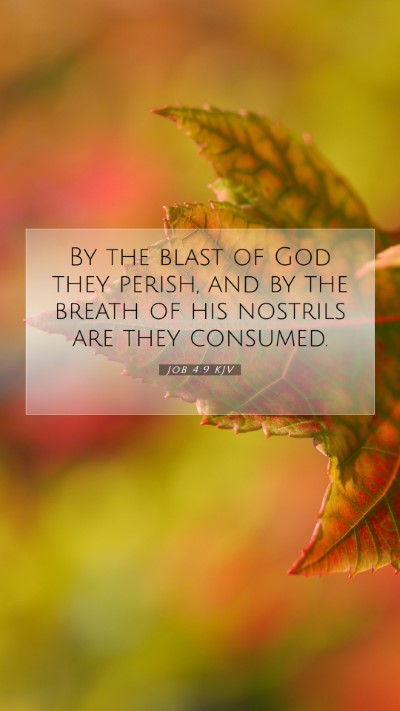Old Testament
Genesis Exodus Leviticus Numbers Deuteronomy Joshua Judges Ruth 1 Samuel 2 Samuel 1 Kings 2 Kings 1 Chronicles 2 Chronicles Ezra Nehemiah Esther Job Psalms Proverbs Ecclesiastes Song of Solomon Isaiah Jeremiah Lamentations Ezekiel Daniel Hosea Joel Amos Obadiah Jonah Micah Nahum Habakkuk Zephaniah Haggai Zechariah MalachiJob 4:9 Meaning
What is the meaning of Job 4:9?
By the blast of God they perish, and by the breath of his nostrils are they consumed.
Job 4:9 Bible Verse Meaning
Understanding Job 4:9
Job 4:9 states, "By the blast of God they perish, and by the breath of his nostrils are they consumed." This verse reflects the theological perspectives on God's power, divine justice, and the transient nature of life.
Bible Verse Meanings
This passage exemplifies the profound understanding of God's sovereignty. The term "blast of God" suggests a divine act, illustrating how human lives are fragile and exist under God’s authority. The imagery of destruction here emphasizes the concept that only by God's will can life flourish or be extinguished.
Bible Verse Interpretations
- Matthew Henry: Henry suggests that this verse highlights God's omnipotence and the suddenness with which He may end human life. It reminds believers of their frail existence compared to God's eternal power.
- Albert Barnes: Barnes interprets this passage as an acknowledgment of the divine decree over creation. He points to the inevitability of mortality and God's role in the life and death of beings, indicating that everything ultimately remains subject to God.
- Adam Clarke: Clarke offers an insight that this verse is a reflection on the state of humanity before God. He emphasizes the fact that all of creation operates under God's breath, symbolizing life and the potential for destruction, underscoring a powerful accountability before God.
Bible Verse Understanding
To truly grasp the essence of Job 4:9, it is essential to understand the historical context of the Book of Job. Job, a man of faith, encounters profound suffering, leading to dialogues around divine justice and the nature of God’s rule in human affairs. This verse crystallizes one of the main themes: that God's voice and actions are definitive for life and existence.
Bible Study Insights
When engaging in Bible study groups, this verse serves as an excellent topic for discussion about the nature of God and human life. Connecting Job's experiences to broader scripture shows the complex relationship between suffering, divine justice, and human understanding.
Meaning of Bible Verses
The implications of Job 4:9 extend beyond its immediate context. It invites believers to reflect on the fragility of life and the serious implications of divine authority over creation—an essential concept in both the Old and New Testaments.
Understanding Scripture
This verse prompts important questions: What does divine sovereignty mean in the face of hardship? Thus, it serves as a basis for practical application in daily life, urging believers to acknowledge God’s power in both creation and destruction.
Cross References
- Psalms 33:6: "By the word of the Lord the heavens were made, and by the breath of his mouth all their host." This verse echoes the creative power of God's breath.
- Isaiah 40:7: "The grass withers, the flower fades; when the breath of the Lord blows on it; surely the people are grass." Similar themes of life’s fragility are discussed here.
- James 4:14: "Yet you do not know what tomorrow will bring. What is your life? For you are a mist that appears for a little time and then vanishes." A reflection on the temporality of human existence.
Conclusion
Job 4:9 encapsulates significant theological insights about the power of God in life and death. By understanding this verse through the lenses of biblical commentary, readers gain a multi-dimensional view of Scripture, enabling deeper reflection and stronger connections to their faith.


